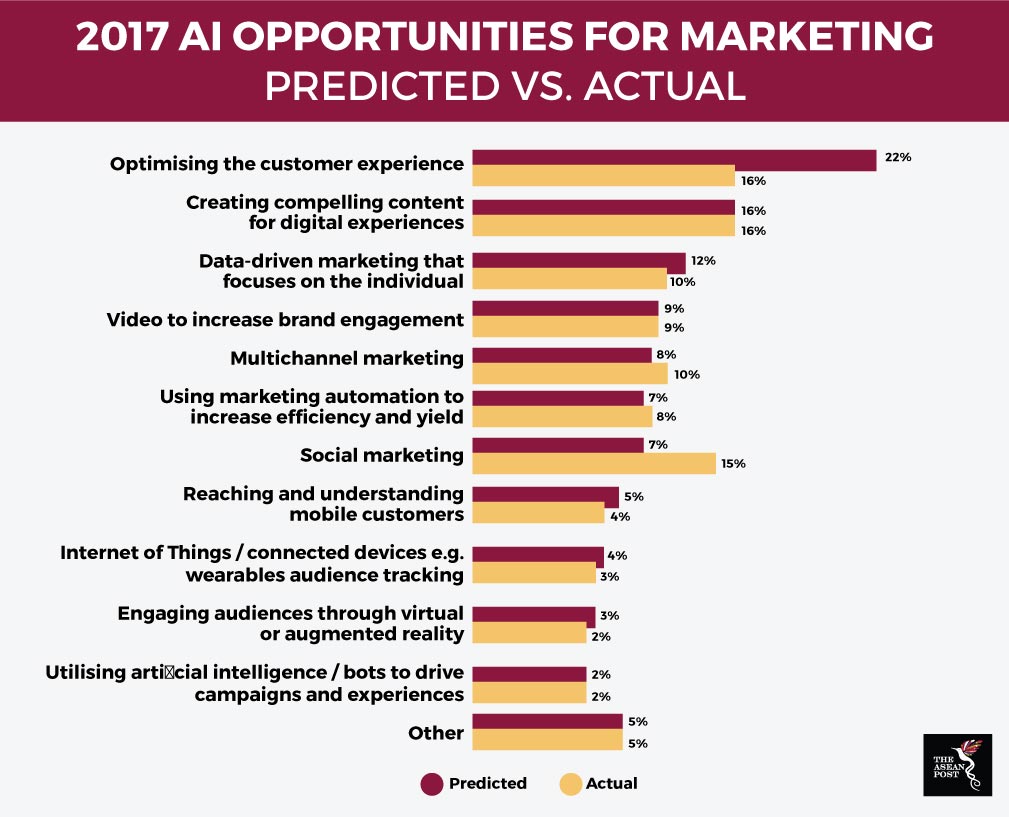The landscape of an enterprise’s technology infrastructure can either make or break its business. New technologies such as artificial intelligence (AI) can be incorporated into a business to optimize the services it provides to its customers across a constantly increasing number of channels and platforms.
Advancements in data collection and aggregation, algorithms, and computer processing power have enabled scientists and engineers to take great strides in developing AI. This technology enables machines to execute tasks that previously would have required human cognition. Many such machine learning systems already have been put to commercial use. Some examples include the use of chatbots by Facebook to replace their human counterparts. Adoption is growing around the world in sectors such as finance, healthcare, and transport - and machine learning systems are beginning to have an impact on the Southeast Asian region as well.
Across Southeast Asia, online retailers such as Zalora and Rakuten have started to use AI to market their products. These two e-commerce companies allow smartphone users to snap a photo of an item and use the image to perform a visual search. This in turn, enables an easier search experience for their customers.

Source: Adobe 2018 Digital Trends report
The use of AI in marketing
According to Adobe’s 2018 Digital Trends, top-performing companies all over the world are twice as likely to be incorporating AI in their marketing strategies. Statistics from the report also show that less than 18 percent of global respondents said their companies are pushing forward with AI but nearly half of the respondents said their organisations had inconsistent integration between technologies.
The survey carried out also highlighted that respondents from the Asian region were more likely to have an integrated, cloud-based technology stack, compared to their North American and European counterparts. This indicates that marketers for Asian businesses are ahead when it comes to utilising the power of new technologies to automate the delivery of bespoke content; empowering them to work rapidly and more efficiently.
Andrew Stephen, Associate Dean for Research and Head of the Marketing Faculty at the Saïd Business School, University of Oxford, mentioned in a commentary on Forbes in 2017 that marketing via AI has been stimulated by the influx of affordable and accessible advanced data analytics tools (typically based on machine learning systems), the availability of increasingly rich and extensive datasets, and a growing acceptance among marketers of the potential power of data-driven approaches to marketing decision making.
AI and personalised experiences key to driving enterprises
Through the use of AI, the customer experience will be enhanced. This is why AI should eventually become a top priority for marketers as they push their respective businesses forward. The Digital Trends report also states that 21% of Asian businesses are looking to integrate AI to help personalise user experiences for their customers.
Some of these personalised experiences include the use of voice interfaces, real-time marketing, mobile app engagement, and multi-channel communication that will enable businesses to understand customers better and in return, drive profit through successful marketing.
Organisations that incorporate well-designed user experience journeys that facilitate clear communication and a seamless transaction are more likely to exceed their business goals. However, most companies in Asia and the Southeast Asian region still do not have a consistent, long-term view and support in place for the future needs of their customers.
Challenges and the way forward
Undoubtedly, the use of AI will still require human resources. However, the demand will be for people enriched with digital skills. According to the McKinsey Global Institute Artificial Intelligence and Southeast Asia’s Future 2017 report, Southeast Asia will require more robust data ecosystems, concerted talent and capability development if AI is to reach its full potential throughout the region. Apart from these challenges, AI will be able to shape the future of marketing by building more meaningful and deeper relationships with customers. Hence, it is vital for enterprises in this region to further develop and implement AI in all aspects of the business.
